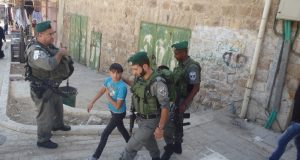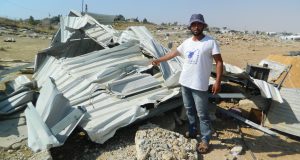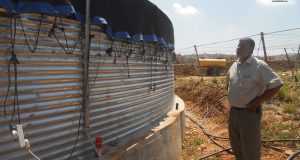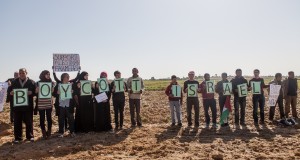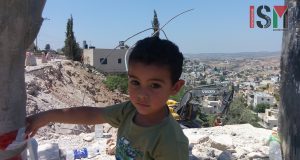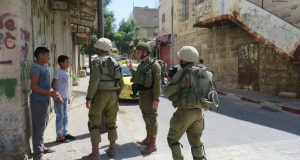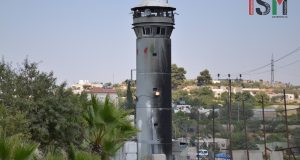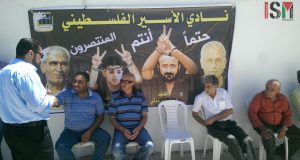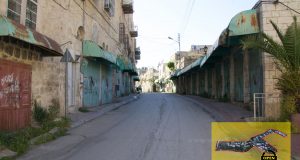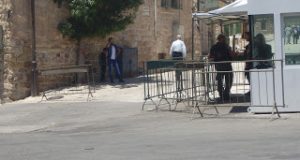10th August 2016 | International Solidarity Movement, Khalil team | Hebron, occupied Palestine What started and should have ended a few hours ago as a scuffle between two boys ended up with a Israeli Border Police action that once again demonstrated ...
Read More »Israeli military destroys six homes in Umm Khaeyr
9th August 2016 | International Solidarity Movement, Khalil team | Umm Khaeyr village, occupied Palestine On the morning of August 9, 2016, ten Israeli military jeeps each filled with five soldiers, arrived in the village of Umm Khaeyr. It was ...
Read More »Settler Harassment and Water Shortages in Beit Ummar
8 August 2016 | International Solidarity Movement, Khalil team | Beit Ummar, occupied Palestine Settler Harassment Ealier today we visited Abdullah Braigheith, a 54 year old farmer, who with his family are facing the risk of getting their agricultural water tank demolished, ...
Read More »Statement concerning Israeli measures against activists
8th August 2016 | International Solidarity Movement The International Solidarity Movement is a Palestinian-led movement with a mandate to support Palestinian nonviolent popular resistance to Israeli military occupation and apartheid. Palestinian-led nonviolent resistance includes the Palestinian call for Boycott, Divestment ...
Read More »“Then the missiles started” – Destruction of three storey building in Surif leaves three families without a home
2nd August 2016 | International Solidarity Movement, Khalil team | Surif, occupied Palestine At 10:30pm on the 26th of July the Israeli military entered the town of Surif, near Hebron, blocking all entrances and surrounding one house with tanks,bulldozers and ...
Read More »Israeli forces hunt for Palestinian children in Hebron market
1st August 2016 | International Solidarity Movement, al-Khalil team | Hebron, occupied Palestine On Sunday, 31st July 2016, Israeli forces in the Old City souq, the Palestinian market, of occupied al-Khalil (Hebron), were searching for a group of three Palestinian ...
Read More »Beit Ummar’s children targeted by the Israeli army
30th July 2016 | International Solidarity Movement, al-Khalil team | Beit Ummar, occupied Palestine Beit Ummar, a small town outside of Hebron, has a population of just 18000 people, around 200 of which are imprisoned, with 6o of those being ...
Read More »Hunger strikes and family visits in occupation jails
30th July 2016 | International Solidarity Movement, al-Khalil team | Hebron, occupied Palestine A demonstration in solidarity with hunger striking prisoners and against the cut of family visits by the International Commmittee of the Red Cross was organised by the ...
Read More »Collective punishment in al-Khalil through closed military zone upheld
30th July 2016 | International Solidarity Movement, al-Khalil team | Hebron, occupied Palestine The Tel Rumeida neighborhood and Shuhada Street, in occupied al-Khalil (Hebron) are still declared a ‘closed military zone’ by Israeli forces. This form of racist collective punishment ...
Read More »Photo Story: Friday Prayer at Ibrahimi Mosque- Running the Gauntlet
22nd July 2016 | International Solidarity Movement, al-Khalil team | al-Khalil, occupied Palestine Every Friday, many Palestinian Muslims come to Ibrahimi Mosque for prayers. To get to their place of worship, and home afterwards, they must run a gauntlet of ...
Read More » International Solidarity Movement Nonviolence. Justice. Freedom.
International Solidarity Movement Nonviolence. Justice. Freedom.
